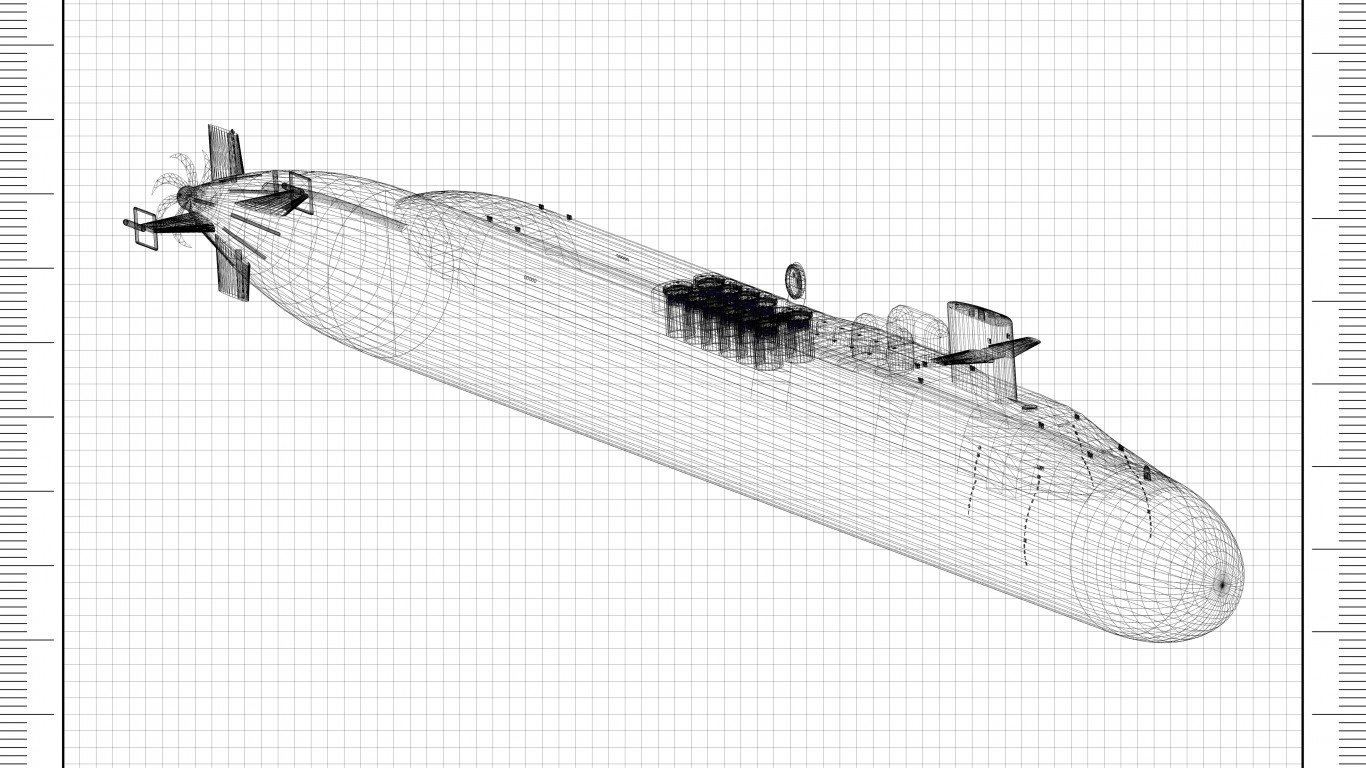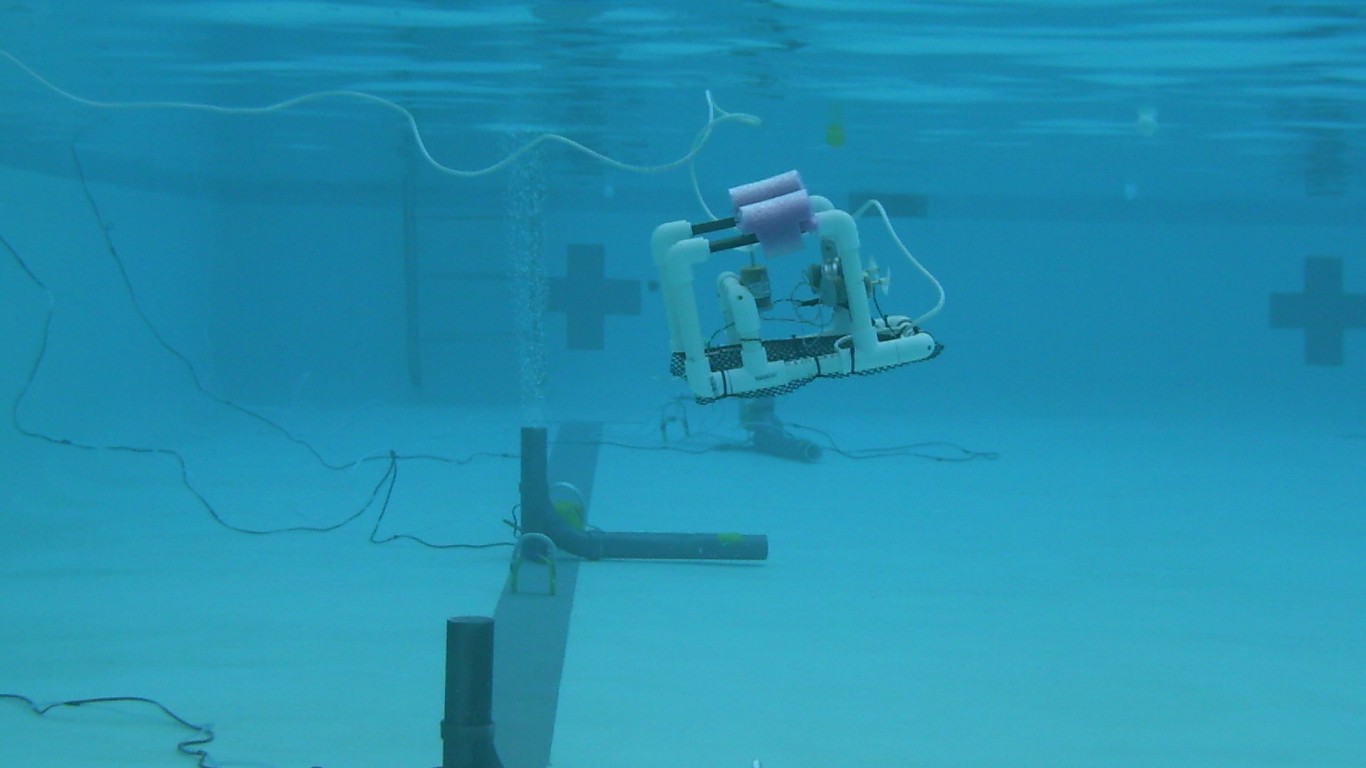
There are over 170 different fields of study tracked by the U.S. Census Bureau in which undergraduate students can earn a degree. Despite the wide range of academic subjects offered at colleges and universities, over half of the 75 million American adults with a bachelor’s degree majored in one of just 15 fields of study.
Majors such as business, nursing, teaching, accounting, and biology are each among the most popular with undergraduates — and with good reason. Degrees in these fields prepare students for careers in essential industries like health care, education, and retail, where job opportunities are available in cities and towns across the country. Here is a look at the college majors with the lowest unemployment.
Of course, just as these industries are practically ubiquitous, many others are specific to certain parts of the country. As a result, workers with degrees in less popular or more specialized subjects are often concentrated only in certain areas.
Using data from the U.S. Census Bureau, 24/7 Wall St. identified the most unique college degree in every state as defined by the location quotient, or relative concentration. That is, college majors were ranked based on the share of adults in a given state with a specific degree relative to the share of adults nationwide with the same degree. For example, petroleum engineering ranks as the most unique college degree in Alaska, as adults in the state are over 15 times more likely than the typical American adult to have a degree in the subject.
As is the case in Alaska, the most unique degree in a given state is often a reflection of a key industry that might be far less common in other parts of the country. In many cases, this is attributable to the presence of natural resources, like oil or mineral deposits, or geographic features, like a coastline.
Though demand for workers with these specific degrees appears to be higher than average in the states in which they are more unique, compensation is not necessarily higher than average. In fact, in just over half of all states, the average earnings among those with the most unique degree is less than what it is nationwide. Here is a look at the highest paying college majors.
Click here to see the most unique college degree in every state
To determine the most unique college degree in every state, 24/7 Wall St. reviewed data on the share of adults 25 years and older by detailed undergraduate major from the U.S. Census Bureau’s 2019 American Community Survey Public Use Microdata Sample. College majors were ranked within each state according to their location quotient — the percentage of adults within a state with a certain bachelor’s degree relative to the percentage of adults with the respective degree nationwide — a metric used to measure relative concentration within a specific geography. The college major or field of study with the highest location quotient was considered the most unique college degree in every state.
Data on average annual earnings for adults 25 years and over with each degree and the percentage of adults 25 and over with a bachelor’s degree or higher also came from the 2019 ACS. College degrees with “miscellaneous” in their title were excluded from consideration.

Alabama, most unique degree: Counseling psychology
> Concentration of adults with the degree: 3.0 times higher than nationwide
> Share of adults with the degree: 0.36% in state, 0.12% nationwide
> Avg. annual earnings for workers with the degree: $23,938 state, $36,690 nationwide
[in-text-ad]

Alaska, most unique degree: Petroleum engineering
> Concentration of adults with the degree: 15.1 times higher than nationwide
> Share of adults with the degree: 0.84% in state, 0.06% nationwide
> Avg. annual earnings for workers with the degree: $44,354 state, $84,648 nationwide

Arizona, most unique degree: Astronomy and astrophysics
> Concentration of adults with the degree: 3.7 times higher than nationwide
> Share of adults with the degree: 0.06% in state, 0.02% nationwide
> Avg. annual earnings for workers with the degree: $39,787 state, $64,155 nationwide

Arkansas, most unique degree: Mathematics and computer science
> Concentration of adults with the degree: 4.2 times higher than nationwide
> Share of adults with the degree: 0.11% in state, 0.03% nationwide
> Avg. annual earnings for workers with the degree: $34,072 state, $91,843 nationwide
[in-text-ad-2]

California, most unique degree: Cognitive science and biopsychology
> Concentration of adults with the degree: 3.3 times higher than nationwide
> Share of adults with the degree: 0.11% in state, 0.03% nationwide
> Avg. annual earnings for workers with the degree: $81,322 state, $78,131 nationwide

Colorado, most unique degree: Geological and geophysical engineering
> Concentration of adults with the degree: 4.3 times higher than nationwide
> Share of adults with the degree: 0.06% in state, 0.02% nationwide
> Avg. annual earnings for workers with the degree: $86,620 state, $59,837 nationwide
[in-text-ad]

Connecticut, most unique degree: Clinical psychology
> Concentration of adults with the degree: 4.5 times higher than nationwide
> Share of adults with the degree: 0.23% in state, 0.05% nationwide
> Avg. annual earnings for workers with the degree: $70,067 state, $53,570 nationwide

Delaware, most unique degree: Interdisciplinary social sciences
> Concentration of adults with the degree: 5.1 times higher than nationwide
> Share of adults with the degree: 0.85% in state, 0.17% nationwide
> Avg. annual earnings for workers with the degree: $29,811 state, $51,391 nationwide

Florida, most unique degree: Oceanography
> Concentration of adults with the degree: 2.8 times higher than nationwide
> Share of adults with the degree: 0.09% in state, 0.03% nationwide
> Avg. annual earnings for workers with the degree: $41,610 state, $59,760 nationwide
[in-text-ad-2]

Georgia, most unique degree: Early childhood education
> Concentration of adults with the degree: 2.9 times higher than nationwide
> Share of adults with the degree: 1.18% in state, 0.41% nationwide
> Avg. annual earnings for workers with the degree: $37,703 state, $33,511 nationwide

Hawaii, most unique degree: Oceanography
> Concentration of adults with the degree: 9.6 times higher than nationwide
> Share of adults with the degree: 0.32% in state, 0.03% nationwide
> Avg. annual earnings for workers with the degree: $20,674 state, $59,760 nationwide
[in-text-ad]

Idaho, most unique degree: Mining and mineral engineering
> Concentration of adults with the degree: 8.9 times higher than nationwide
> Share of adults with the degree: 0.24% in state, 0.03% nationwide
> Avg. annual earnings for workers with the degree: $16,190 state, $87,606 nationwide

Illinois, most unique degree: Court reporting
> Concentration of adults with the degree: 4.3 times higher than nationwide
> Share of adults with the degree: 0.05% in state, 0.01% nationwide
> Avg. annual earnings for workers with the degree: $27,058 state, $45,223 nationwide

Indiana, most unique degree: Public policy
> Concentration of adults with the degree: 5.1 times higher than nationwide
> Share of adults with the degree: 0.33% in state, 0.07% nationwide
> Avg. annual earnings for workers with the degree: $42,552 state, $89,761 nationwide
[in-text-ad-2]

Iowa, most unique degree: Agriculture production and management
> Concentration of adults with the degree: 7.3 times higher than nationwide
> Share of adults with the degree: 1.43% in state, 0.19% nationwide
> Avg. annual earnings for workers with the degree: $54,693 state, $59,255 nationwide

Kansas, most unique degree: Agricultural economics
> Concentration of adults with the degree: 5.9 times higher than nationwide
> Share of adults with the degree: 0.48% in state, 0.08% nationwide
> Avg. annual earnings for workers with the degree: $27,949 state, $75,213 nationwide
[in-text-ad]

Kentucky, most unique degree: Nuclear, industrial radiology, and biological technologies
> Concentration of adults with the degree: 4.1 times higher than nationwide
> Share of adults with the degree: 0.10% in state, 0.02% nationwide
> Avg. annual earnings for workers with the degree: $76,870 state, $72,635 nationwide

Louisiana, most unique degree: Petroleum engineering
> Concentration of adults with the degree: 7.3 times higher than nationwide
> Share of adults with the degree: 0.41% in state, 0.06% nationwide
> Avg. annual earnings for workers with the degree: $65,676 state, $84,648 nationwide
Maine, most unique degree: Naval architecture and marine engineering
> Concentration of adults with the degree: 11.1 times higher than nationwide
> Share of adults with the degree: 0.40% in state, 0.04% nationwide
> Avg. annual earnings for workers with the degree: $118,517 state, $79,502 nationwide
[in-text-ad-2]

Maryland, most unique degree: Information sciences
> Concentration of adults with the degree: 3.1 times higher than nationwide
> Share of adults with the degree: 0.62% in state, 0.20% nationwide
> Avg. annual earnings for workers with the degree: $87,740 state, $83,968 nationwide

Massachusetts, most unique degree: Naval architecture and marine engineering
> Concentration of adults with the degree: 3.1 times higher than nationwide
> Share of adults with the degree: 0.11% in state, 0.04% nationwide
> Avg. annual earnings for workers with the degree: $101,618 state, $79,502 nationwide
[in-text-ad]

Michigan, most unique degree: Mechanical engineering related technologies
> Concentration of adults with the degree: 3.3 times higher than nationwide
> Share of adults with the degree: 0.20% in state, 0.06% nationwide
> Avg. annual earnings for workers with the degree: $66,874 state, $68,182 nationwide

Minnesota, most unique degree: Soil science
> Concentration of adults with the degree: 6.0 times higher than nationwide
> Share of adults with the degree: 0.07% in state, 0.01% nationwide
> Avg. annual earnings for workers with the degree: $59,735 state, $47,202 nationwide

Mississippi, most unique degree: Oceanography
> Concentration of adults with the degree: 5.1 times higher than nationwide
> Share of adults with the degree: 0.17% in state, 0.03% nationwide
> Avg. annual earnings for workers with the degree: $44,003 state, $59,760 nationwide
[in-text-ad-2]

Missouri, most unique degree: Social psychology
> Concentration of adults with the degree: 3.7 times higher than nationwide
> Share of adults with the degree: 0.08% in state, 0.02% nationwide
> Avg. annual earnings for workers with the degree: $30,080 state, $44,041 nationwide

Montana, most unique degree: Soil science
> Concentration of adults with the degree: 20.2 times higher than nationwide
> Share of adults with the degree: 0.24% in state, 0.01% nationwide
> Avg. annual earnings for workers with the degree: $60,764 state, $47,202 nationwide
[in-text-ad]

Nebraska, most unique degree: Atmospheric sciences and meteorology
> Concentration of adults with the degree: 7.3 times higher than nationwide
> Share of adults with the degree: 0.34% in state, 0.05% nationwide
> Avg. annual earnings for workers with the degree: $68,211 state, $72,649 nationwide

Nevada, most unique degree: Geological and geophysical engineering
> Concentration of adults with the degree: 7.9 times higher than nationwide
> Share of adults with the degree: 0.12% in state, 0.02% nationwide
> Avg. annual earnings for workers with the degree: $26,755 state, $59,837 nationwide

New Hampshire, most unique degree: Mathematics and computer science
> Concentration of adults with the degree: 7.0 times higher than nationwide
> Share of adults with the degree: 0.19% in state, 0.03% nationwide
> Avg. annual earnings for workers with the degree: $143,582 state, $91,843 nationwide
[in-text-ad-2]

New Jersey, most unique degree: Naval architecture and marine engineering
> Concentration of adults with the degree: 2.0 times higher than nationwide
> Share of adults with the degree: 0.07% in state, 0.04% nationwide
> Avg. annual earnings for workers with the degree: $59,264 state, $79,502 nationwide

New Mexico, most unique degree: Military technologies
> Concentration of adults with the degree: 4.7 times higher than nationwide
> Share of adults with the degree: 0.05% in state, 0.01% nationwide
> Avg. annual earnings for workers with the degree: $42,302 state, $52,807 nationwide
[in-text-ad]

New York, most unique degree: Art history and criticism
> Concentration of adults with the degree: 2.3 times higher than nationwide
> Share of adults with the degree: 0.50% in state, 0.22% nationwide
> Avg. annual earnings for workers with the degree: $76,474 state, $52,315 nationwide

North Carolina, most unique degree: Atmospheric sciences and meteorology
> Concentration of adults with the degree: 2.1 times higher than nationwide
> Share of adults with the degree: 0.10% in state, 0.05% nationwide
> Avg. annual earnings for workers with the degree: $54,526 state, $72,649 nationwide

North Dakota, most unique degree: Agricultural economics
> Concentration of adults with the degree: 12.1 times higher than nationwide
> Share of adults with the degree: 0.98% in state, 0.08% nationwide
> Avg. annual earnings for workers with the degree: $57,683 state, $75,213 nationwide
[in-text-ad-2]

Ohio, most unique degree: Teacher education: multiple levels
> Concentration of adults with the degree: 2.7 times higher than nationwide
> Share of adults with the degree: 0.64% in state, 0.23% nationwide
> Avg. annual earnings for workers with the degree: $41,128 state, $32,416 nationwide

Oklahoma, most unique degree: Military technologies
> Concentration of adults with the degree: 6.8 times higher than nationwide
> Share of adults with the degree: 0.07% in state, 0.01% nationwide
> Avg. annual earnings for workers with the degree: $63,073 state, $52,807 nationwide
[in-text-ad]

Oregon, most unique degree: Geological and geophysical engineering
> Concentration of adults with the degree: 4.5 times higher than nationwide
> Share of adults with the degree: 0.07% in state, 0.02% nationwide
> Avg. annual earnings for workers with the degree: $63,098 state, $59,837 nationwide

Pennsylvania, most unique degree: Architectural engineering
> Concentration of adults with the degree: 2.8 times higher than nationwide
> Share of adults with the degree: 0.10% in state, 0.04% nationwide
> Avg. annual earnings for workers with the degree: $95,598 state, $88,629 nationwide

Rhode Island, most unique degree: Electrical, mechanical, and precision technologies and production
> Concentration of adults with the degree: 4.0 times higher than nationwide
> Share of adults with the degree: 0.13% in state, 0.03% nationwide
> Avg. annual earnings for workers with the degree: $15,370 state, $58,706 nationwide
[in-text-ad-2]

South Carolina, most unique degree: Materials Engineering And Materials Science
> Concentration of adults with the degree: 2.8 times higher than nationwide
> Share of adults with the degree: 0.16% in state, 0.06% nationwide
> Avg. annual earnings for workers with the degree: $111,940 state, $84,297 nationwide

South Dakota, most unique degree: Soil science
> Concentration of adults with the degree: 9.6 times higher than nationwide
> Share of adults with the degree: 0.12% in state, 0.01% nationwide
> Avg. annual earnings for workers with the degree: $47,202 nationwide
[in-text-ad]

Tennessee, most unique degree: Nuclear engineering
> Concentration of adults with the degree: 2.8 times higher than nationwide
> Share of adults with the degree: 0.08% in state, 0.03% nationwide
> Avg. annual earnings for workers with the degree: $103,059 state, $83,470 nationwide

Texas, most unique degree: Petroleum engineering
> Concentration of adults with the degree: 6.2 times higher than nationwide
> Share of adults with the degree: 0.34% in state, 0.06% nationwide
> Avg. annual earnings for workers with the degree: $99,147 state, $84,648 nationwide

Utah, most unique degree: Court reporting
> Concentration of adults with the degree: 6.8 times higher than nationwide
> Share of adults with the degree: 0.08% in state, 0.01% nationwide
> Avg. annual earnings for workers with the degree: $9,412 state, $45,223 nationwide
[in-text-ad-2]

Vermont, most unique degree: Geological and geophysical engineering
> Concentration of adults with the degree: 12.6 times higher than nationwide
> Share of adults with the degree: 0.19% in state, 0.02% nationwide
> Avg. annual earnings for workers with the degree: $5,700 state, $59,837 nationwide

Virginia, most unique degree: Military technologies
> Concentration of adults with the degree: 3.5 times higher than nationwide
> Share of adults with the degree: 0.04% in state, 0.01% nationwide
> Avg. annual earnings for workers with the degree: $65,522 state, $52,807 nationwide
[in-text-ad]

Washington, most unique degree: Naval architecture and marine engineering
> Concentration of adults with the degree: 2.8 times higher than nationwide
> Share of adults with the degree: 0.10% in state, 0.04% nationwide
> Avg. annual earnings for workers with the degree: $111,957 state, $79,502 nationwide

West Virginia, most unique degree: Mining and mineral engineering
> Concentration of adults with the degree: 10.0 times higher than nationwide
> Share of adults with the degree: 0.27% in state, 0.03% nationwide
> Avg. annual earnings for workers with the degree: $49,141 state, $87,606 nationwide

Wisconsin, most unique degree: Soil science
> Concentration of adults with the degree: 6.9 times higher than nationwide
> Share of adults with the degree: 0.08% in state, 0.01% nationwide
> Avg. annual earnings for workers with the degree: $54,931 state, $47,202 nationwide
[in-text-ad-2]

Wyoming, most unique degree: Mining and mineral engineering
> Concentration of adults with the degree: 15.4 times higher than nationwide
> Share of adults with the degree: 0.41% in state, 0.03% nationwide
> Avg. annual earnings for workers with the degree: $31,791 state, $87,606 nationwide
Cash Back Credit Cards Have Never Been This Good
Credit card companies are at war, handing out free rewards and benefits to win the best customers. A good cash back card can be worth thousands of dollars a year in free money, not to mention other perks like travel, insurance, and access to fancy lounges. See our top picks for the best credit cards today. You won’t want to miss some of these offers.
Flywheel Publishing has partnered with CardRatings for our coverage of credit card products. Flywheel Publishing and CardRatings may receive a commission from card issuers.
Thank you for reading! Have some feedback for us?
Contact the 24/7 Wall St. editorial team.
 24/7 Wall St.
24/7 Wall St. 24/7 Wall St.
24/7 Wall St.
 24/7 Wall St.
24/7 Wall St. 24/7 Wall St.
24/7 Wall St. 24/7 Wall St.
24/7 Wall St.
